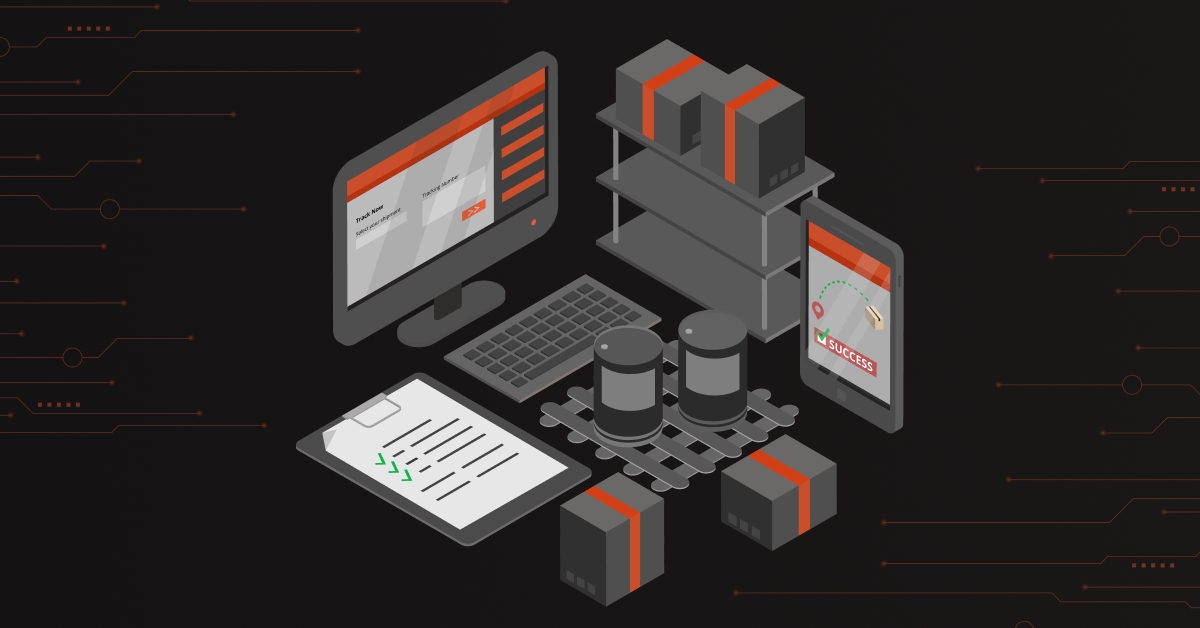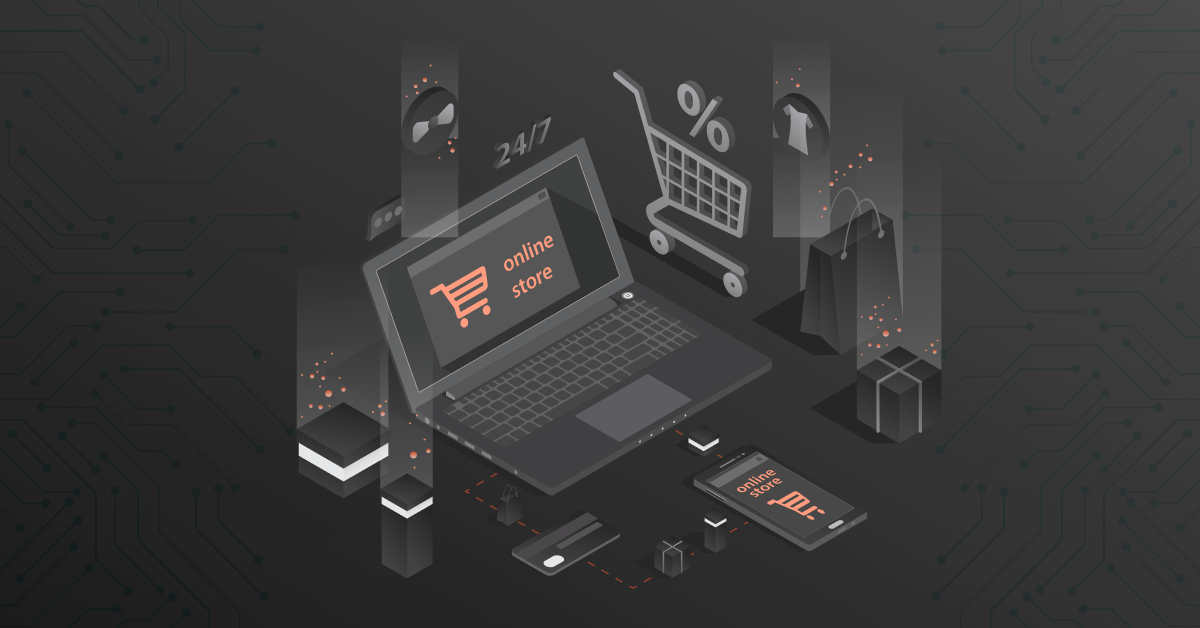A smart decision is the result of the accurate information! Let’s unfold the possibilities in eCommerce Business Intelligence (BI) software to amplify your business success.
Business Intelligence (BI) is a silver bullet for eCommerce vendors. The crucial role of BI in eCommerce is indispensable to futureproof your business strategy. A combination of well-thought-out strategies and the best technologies are integral to leverage eCommerce success and inventory management. Distributors & retailers, it’s time to check your available data proficiency! The power of Big Data is transforming the eCommerce sector. According to the Forbes report, the number of professionals using descriptive and predictive analytics grew by 20% in one year alone. About 2.5 quintillion bytes of data are created every day. Adopting BI into your eCommerce channel helps you make sense of the sheer volume of data created every day.
Contents
Nitty-Gritty of Business Intelligence Software
Business Intelligence or BI comprises a set of applications, tools, technologies, or practices that convert raw data into meaningful information. If you are an eCommerce store owner or distributor, incorporating business intelligence into your online platform provides you with reliable and relevant information about target audience and other crucial business data. Also, it leverages accuracy and precision in decision-making.
Let’s see some key features of business intelligence platform that help you leverage business processes
- A BI tool has the operational capability to collect raw data and convert them into compelling dashboards and reports by providing real-time visibility.
- Data visualization through Business intelligence helps to recognize the relationship between various data.
- Online Analytics Processing (OLAP) helps in real-time calculation and forecasting.
- Help to track buyers’ persona and patterns by creating a user profile based on their shopping journey.
- Data transparency through BI enhances visibility in business operations. Thus, errors can be detected and rectified effortlessly.
- Provide actionable insights to enhance engagement, build trust and boost sales.
- Enhance marketing efforts and ROI (Return on Investment) by providing key metrics like customer acquisition cost (CAC), cost per lead (CPL), click-through rates of the campaigns (CTR), etc.
- Compare data metrics like cost, time, and strategies with that of competitors and help set industry standards.
Types Of Business Intelligence
 1. Strategic Business Intelligence
1. Strategic Business Intelligence
In a strategic BI, better decisions are made by analyzing data mart or data warehouse presented in dashboards or graphs. The predetermined set of metrics help to gauge the historical context of data and enables informed decision-making and strategizing long-term goals. The significant role of Strategic Business Intelligence are:
- Data management & organization
- Optimization of data for strategic analysis
- Summarizing the whole performance
- Finding the crucial business success factor from records
- Deducing solutions through the sheer collection of data from different sources
2. Operational Business Intelligence
Operational Business Intelligence (OBI) is task-oriented. OBI provides time-sensitive & relevant data that is crucial to carry out a time-bound business operation or daily task. According to McKinsey’s research, 40% of our time is spent making business decisions. Unlike strategic BI that gives you a snapshot of historical context, operational BI provides you with live streaming data to boost performance. The data democratization in OBI helps to:
- Prioritize the integral task for your business
- Real-time error detection and correction based on live data
- Help in budgeting, planning, and cost-saving.
Is eCommerce Business Intelligence Crucial to Develop a Successful Online Store?
In 2020, 54% of enterprises claimed Cloud BI is either critical or very important to their ongoing and future initiatives. Here are some crucial features that explain the role of eCommerce business intelligence in accelerating success:
- Offer advanced client segmentation or categorization based on regular customer behavior, interests, and purchase records.
- Provide personalized customer experience and simplify user experience through customized resources (personalized products and promotion, discounts and rewards, etc.).
- Gain insights on market intelligence by helping businesses understand trending product performance, competitors’ market strategies, and top-performing channels.
Read More: Top 4 Ways to Optimize eCommerce
Business Intelligence VS Data Analytics: Decoding Key Differences
Business Intelligence & Data Analytics are often interchangeably used. But there are differences that we must understand to drive the expected outcome. Here are some crucial differences between Data analytics & Business Intelligence you need to recognize before integrating BI or Data Analytics.
- BI relies upon past data to derive informed decisions, whereas Data Analytics focuses on future predictions and trends. In concise, BI is concerned about operations, while Data analytics is aligned to innovations.
- BI is oriented towards achieving goals, while data analytics adds new goals by analyzing trends. In a more specific way, Business intelligence amplifies decision-making, and data analytics promotes questioning trends to drive innovation into your eCommerce platforms.
Business Intelligence & Data Analytics are equally important in the digital world. Nothing is possible without gaining experience from past records, and nothing new is achievable without predicting the future and setting goals.
The Best Business Intelligence Tools for eCommerce
 1. Microsoft Power BI
1. Microsoft Power BI
Do you want to explore insights hidden in your data through dashboards and reports generated by analytics software? Microsoft Power BI provides you with up-to-the-minute eCommerce analytics with enhanced security, simplicity, and visibility. It helps your team members make informed decisions through data-driven solutions and improve conversion rate.
Some of the top features of Microsoft BI is:
- Data visualizations
- Built-in AI capabilities
- Tight Excel integration
- Prebuilt and custom data connectors
2. Tableau
Are you using a BI tool for the first time? Well, then Tableau is a perfect solution for beginners. The simple UI design will help you learn the features easily. Also, Tableau creates a custom dashboard and focuses more on the data visualization part. The artificial intelligence or machine learning capability lets you connect to your data and gain valuable insights through enhanced built-in visual practices.
3. Zoho Analytics
Zoho’s BI suite is a self-service BI and analytics solution that creates reports and dashboards. Moreover, it helps you track your key business metrics, market trends, outliers, and helps to predict the future. You can easily connect the Zoho BI suite to all files & feeds, business apps, cloud, and on-premise databases without much hassle.
4. HubSpot Marketing Analytics & Dashboard Software
Hubspot Marketing Analytics & Dashboard Software is an all-in-one inbound marketing software that helps eCommerce business owners leverage their competitive edge & business Intelligence capabilities. It enables easy creation of custom reports by connecting all CRM contact, company, deal data, and sales & service data for better visualization. Companies can also integrate their business apps through Hubspot App Marketplace. Quick measures, grouping, forecasting, and clustering are other top-hole benefits of Hubspot.
5. Looker
Unlike other BI eCommerce analytics tools, Looker is a part of Google Cloud and works in Databases. Its platform-independent nature helps in combining multiple datasets, tracking cross-channel customer behavior, and segmenting customers by attributes. Also, Looker tracks KPIs like CPC, CTR, and CPA by helping you understand campaign revenue details and deduce precise reporting.
How to Choose the Best eCommerce Business Intelligence Tool
1. Analyze Data Capabilities
Different tools have different data capabilities. Identifying your unique challenges in accessing data should be considered while choosing powerful tools for leveraging your BI data capabilities. Let’s see some of the basic data capabilities you must look at in a Business Intelligence platform/tools:
Data Connectors: It enables connection to your external data sources and leverages data flow.
Data Preparation: It involves cleaning and transforming raw data prior to analysis.
Speed of Data Delivery: The speed at which relevant data passes from the data warehouse to the tool.
Data Scalability: The ability to handle a large amount of data. Some tools may have a data limit.
 2. Understand the stakeholders involved
2. Understand the stakeholders involved
Analyze the business needs of people involved in your business (both from the development and consumption side). Always cross-check ease of use and data visualization features. Consider all the stakeholders’ interests, types of data they need, and other report requirements before you incorporate BI in your eCommerce platform.
3. Check Implementation & Maintenance Requirements
You need to know how a BI tool affects your organization.
- How is the data processed?
- Who all have access?
- How can it be administered for future expansion?
These queries should be addressed before you adopt a Business Intelligence tool. Data security, governance, and customization facilities should be inspected to derive the expected outcome.
4. Analyze Implementation Cost & Other soft Costs
It’s not just enough to calculate the initial cost. You also need to consider the maintenance cost and other soft costs (live help, documentation, training) and scaling costs (licensing, infrastructure).
Meaningful Integration: Combine BI with Your Data Integration Platforms for Better Performance
Scale up your data integration before you implement eCommerce Business Intelligence
eCommerce Business intelligence tools need a data integration solution to produce meaningful results and accelerate data consumption time. Your data can be stored in Customer Relationship Management (CRM) platforms, Enterprise Resource Planning (ERP), or on cloud-based and on-premises systems. A data integration platform helps to integrate all your eCommerce data from external sources and supplies clean data to the BI tools.
Recommended Reading: An Overview of Business Implications of ERP eCommerce Integration
Utilizing automated data integration methods can accelerate your integration speed. It can reduce manual errors and helps to eliminate data silos in real-time. The automated data integration method can be performed using a number of integration methods:
Data Consolidation
Data from various sources are stored in a centralized data repository to reduce multiple data channels.
Data Warehousing
Data warehousing allows electronic data storage facilities to improve business insights and reporting capabilities.
Data Virtualization
Data virtualization is a holistic view of data from various source systems. This virtual data layer enables business users to access any enterprise information regardless of location and format.
Data Propagation
Data propagation is all about transferring data from a data warehouse to a data mart (specific subject area)
Shoot Up Your Business Competency through Business Intelligence
Gain insights from data to clear your gateway to success and stand out amidst competition.
BI software is a guiding force that can revolutionize eCommerce businesses by amplifying competitive intelligence if utilized in the right way. eCommerce is no more just an online selling channel. It is a platform to build an emotional connection with the customers and share your brand story. In a nutshell, your online store should be a playground of data converted into meaningful stories. Get ready to narrate your product story to the customers by gaining actionable insights through eCommerce business intelligence.




